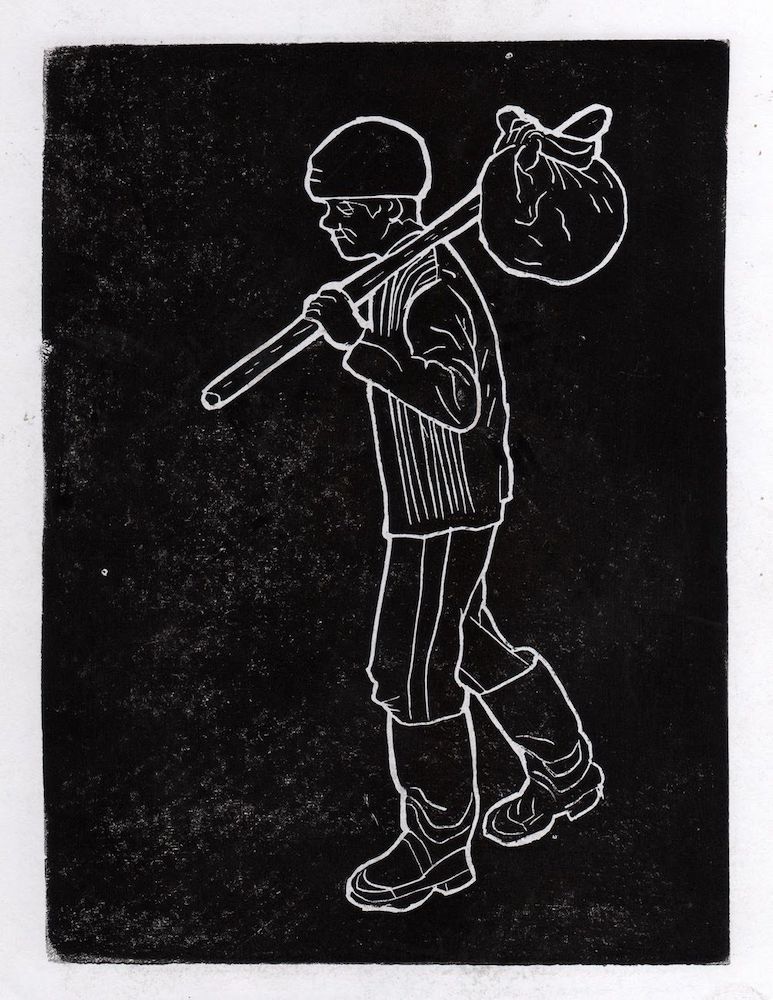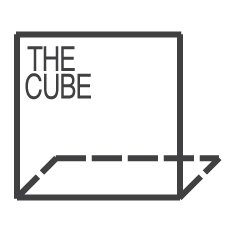
Tamás Kaszás
Sci-Fi Agit Prop, 2018, bulletin board, posters
Courtesy of the artist and Kisterem Gallery, Budapest
SEAMS

Tamás Kaszás’ Sci-Fi Agit Prop (The Science Fiction of Agitative Propaganda) is a series of graphic works on a bulletin board. The posters are displayed as the communiqués of a fictional, self-sufficient, utopian community living in a rural area. While Sci-Fi Agit Prop is set in an imagined future and puts forth possible practices and knowledge after a fictitious political-economic-technological collapse (“innovate and simplify,” “conquer the permafrost”), this futurist project from the past, has now, in the current moment of rupture, arrived in the present.
Kaszás has engaged with experiments in self-supported living for more than fifteen years, both in his work and in his private life. Consequently, the means and the ends of his artistic practice align: He uses low-quality, low-technology, easily available, easily reproducible, cheap materials and methods, that—with a bit of practice and dedication—could be followed without much reliance on any infrastructure. At the same time, there are several cultural references and quotes in Sci-Fi Agit Prop. In terms of format, the Hungarian artist deploys and queries twentieth-century political visual communication: grassroots, revolutionary, agitative practices as well as the state socialist propaganda circulated to people in Eastern Europe, among others, on wooden bulletin boards.
The current significance of Sci-Fi Agit Prop lies in its practical, embodied approach. Rather than solely theorizing about ruptures, Kaszás proposes an alternative in practice: Engaging with the surrounding, resorting to available means and creativity, one could become more self-sufficient and thus more autonomous. Cutting across ideological, historical, and territorial dividing lines, “here comes the folk science.”
-Curator |Eszter Szakács
Tamás Kaszás
(based in Budapest) Born in 1976 in Dunaújváros, Hungary’s first socialist town (former Sztálinváros, “Stalin- town”). He graduated at the Intermedia department of the Hungarian Academy of Fine Arts where recently he has continued with his doctoral studies. Kaszás usually creates complex projects inspired by theoretical research. Then applies traditional and new media as well. By mixing poetic images with useful inventions in his exhibiting practice, art pieces appear mostly as special constellations in the frame of large installations (visual-aid). His projects are based on social questions and spiritual science. Keywords like collectivity, collapse and survival, self-sustainability and autonomy, theory vs practice, folk science, home-made homes, cargo cult, etc. might give an idea about his main topics. In accordance with his conceptual background, Kaszás tries to make an economic and ecological art practice using mostly cheap or recycled materials, techniques easily available for everyone.
Curator : Eszter Szakács
Eszter Szakács is a curator, editor, and researcher in Budapest. She works at the contemporary art organization tranzit.hu, where she is co-editor of the online international art magazine Mezosfera, co-editor of the book IMAGINATION/IDEA: The Beginning of Hungarian Conceptual Art—The László Beke Collection, 1971 (Budapest, Zurich: tranzit.hu, JRP|Ringier, 2014), and she curated the collaborative research project Curatorial Dictionary, which has been realized in online and offline formats, including being one of the participating projects of ICI’s exhibition Publishing Against the Grain. She was a research group member of the …OPEN MUSEUM… project initiated by the Museum of Ethnography, Budapest (2014–2018). She is co-editor with Naeem Mohaiemen of the forthcoming anthology Solidarity Must Be Defended (tranzit.hu– Van Abbemuseum– SALT– Tricontinental– Asia Culture Center, 2020). She is a curatorial team member of the civil initiative OFF-Biennale Budapest. Her practice revolves around questions of internationalism, methods of cultural resistance, relations between Eastern Europe and the Global South, as well as the exhibition form of research.


